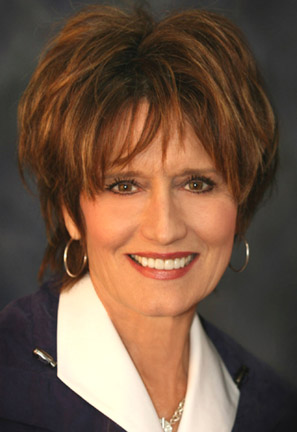
DALLAS (BP) — Social media has radically altered the cultural landscape. As ministry wives, we have an unparalleled opportunity via Facebook, Twitter, Instagram, etc. to contribute to the good of our church, family and community. But as in everything, social media also can cause great harm.
It’s wise to step back occasionally and evaluate how we are leveraging our leadership platform through these connections. Here are four things to remember — the “DO”s of social media:
— DO #shareyourlife (appropriately, of course). Social media offers a place for us to share our interests, family news, photos and our life in general. These posts enable our church family and community to identify with us and discover who we are. Conversely, it makes us aware of what is happening in the lives of others.
— DO #useyourplatform to engage in meaningful conversations. This is one of the primary advantages of social media — a spiritual leader can address current/cultural events immediately and help others process them through a biblical lens. Using social media for purposeful conversations is effective, helpful and contributes to a strong presence online.
— DO #thinkstrategically. How can you add the most value to the issues that interest you? Posting links to good articles, promoting organizations/causes that are in line with your ministry and just generally edifying others is when social media is at its best. At the same time, people who share a mix of their personal life, cultural trends, interesting quotes and good insights keep me scrolling until I find their posts.
–DO #setboundaries. Social media can easily hijack your time and mental energy, becoming a major distraction. As someone said, “When you’ve got five minutes to fill, Twitter is a great way to fill 35.” Consider an occasional “technology sabbath.” The general rule seems to be this: If you can’t go an hour without checking Facebook, Twitter or Instagram, you need to face up to your fixation and do something fast. Call it Social Media Maintenance and be vigilant about it.
You can’t have the “do”s without the “don’t”s.
Our posts sometimes carry more weight than we realize and if they are negative or perceived as mean-spirited, they can compromise our witness and effectiveness.
Here are four “don’t”s of social media. Of course there are many more, but these will get you started down the path of good sense, spiritual discernment and wise discretion:
— Don’t post when #angryandirritated. Rants and inflammatory language used against others never cause you to come off looking good — it’s a very poor witness. Not only that, there is a significant chance you will regret something you said in anger. Even if you go back and delete, it was posted and was public. “Don’t say anything online that you wouldn’t want plastered on a billboard with your face on it” (digital marketer/technology journalist Erin Bury). That thought should give all of us pause.
— Don’t be #rude. There are times when negative observations, warnings or hard truths need to be stated, especially as the church seeks to be counter-cultural in our post-Christian world. But that is never a reason to use harsh, unkind language. Online rudeness is no different than face-to-face rudeness. Remember, the written word does not communicate your body language or tone of voice, which could be used to offset anything offensive. Always use Ephesians 4:32 as your guideline.
— Don’t #selfpromote. Just don’t. Distinguish between recommending a good resource you provide rather than promoting yourself.
— Don’t #flirt (unless it’s with your husband). Online romances and inappropriate emotional connections through social media are rampant, even among believers. Facebook in particular offers endless opportunities for temptation, especially as it relates to former romances. An unhappy marriage is often the catalyst for a Facebook fling. This is a road we cannot go down simply because this temptation itself has a power no other temptation has. C.S. Lewis brilliantly observed, “All the sexual vices have this unfair advantage — that the very temptation is itself pleasurable: whereas the temptations, say, to anger or cowardice, are in themselves unpleasant.” Undoubtedly that is why the apostle Paul says to “flee sexual immorality” (1 Corinthians 6:18). This temptation cannot be reasoned with, it’s too seductive. If you find yourself in this place, you need to “flee,” meaning “close” immediately. Shut it down.
Use social media wisely and encourage others to do the same. It will enhance your influence.























